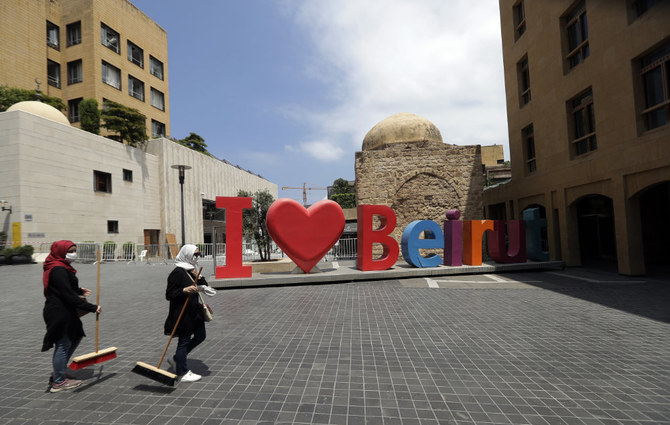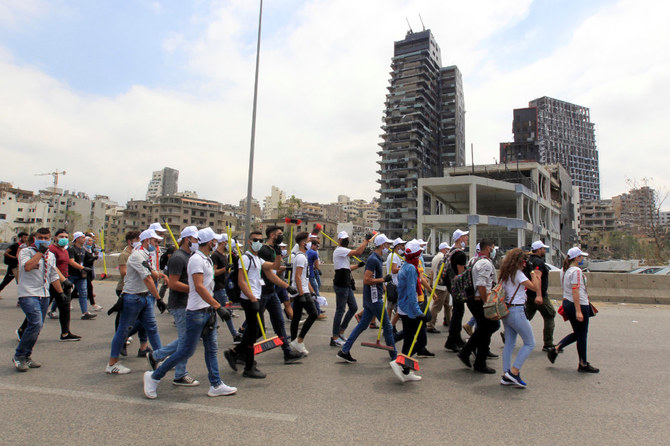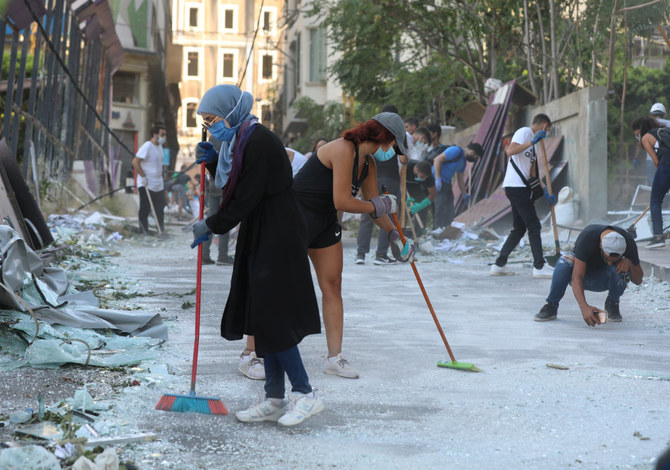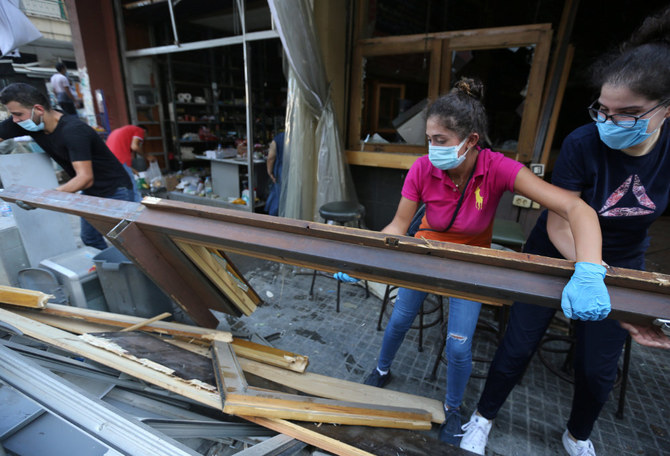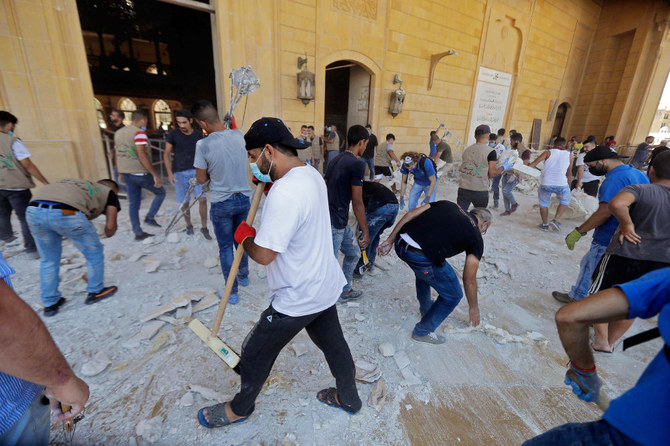BEIRUT: Volunteer civilians armed with brooms and shovels flocked to residential areas damaged by the huge explosion that rocked Beirut on Tuesday evening.
Wearing masks and gloves, they cleaned the debris and glass shards from the inside of homes and the outside of shops.
Martyrs’ Square in downtown Beirut has turned into a volunteer center. Tents have been built and filled with water bottles, bread and food items donated to be distributed to displaced people.
Young women have bought their own brooms and received gloves from the Beirut municipality to protect them from wounds that can be caused by glass fragments.
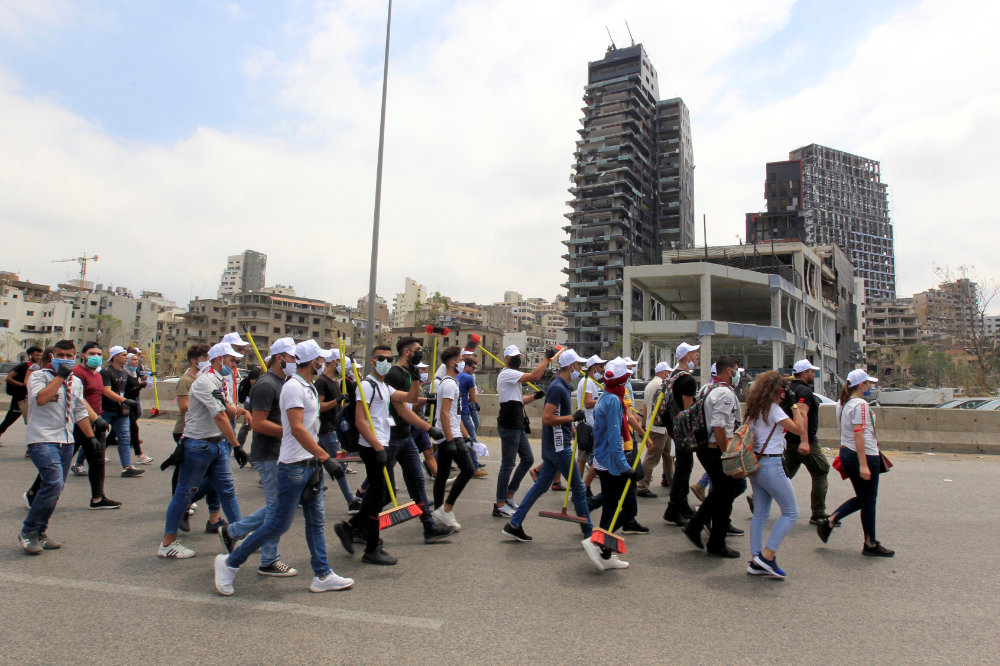
Lebanese citizens walk to the site of Tuesday's blast in Beirut's port area on August 6, 2020 to help in the cleanup. (REUTERS/Aziz Taher)
Other volunteers have come without any protective gear but are holding shovels to remove the rubble and stating that they are not afraid of injury.
Social-media platforms have been behind some people’s enthusiasm to get involved while others have felt spontaneously motivated to turn up and help out.
Ziad Haidar, of the Lebanese Spotlight organization, said: “Similarly to other volunteers, we are school students between the ages of 16 and 18. We participate in cleaning beaches usually, but today people need our help. All we see is destruction, especially in downtown Beirut, Gemmayze and Mar Mikhael.”
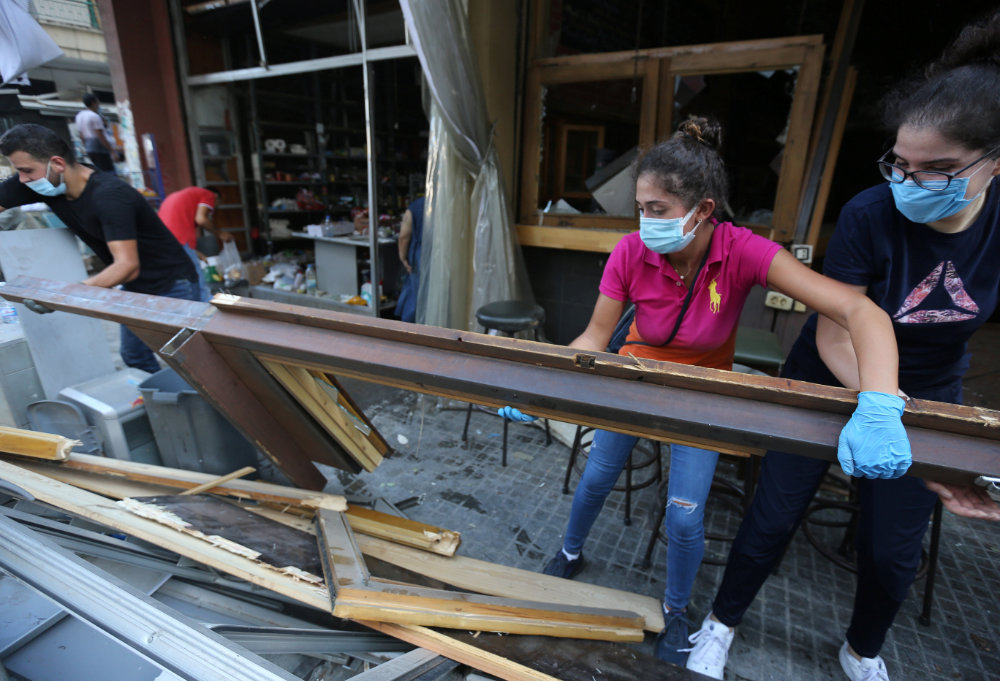
Volunteers clean the streets in Beirut's port area on August 5, 2020 following Tuesday's devastating blast. (REUTERS/Aziz Taher)
Ghida, another volunteer, said: “We are college students from Beirut who gathered, went to the Beirut municipality and received gloves. We bought brooms at our own expense. Most affected people are poor and unable to fix anything broken,”
Jad, 22, and Anas, 21, students at the American University of Beirut (AUB), went to Gemmayze to help. They said that they were not members of any organization but felt the need to take action and not just be bystanders.
“I started helping at my parents’ house, then at the homes of my neighbors,” Anas told Arab News. “We live relatively far from the explosion site but we were affected by the damage. In my neighborhood, I used my car to transport injured people to the hospital.
“The only logical thing I could think of was to offer help. People told me about how they had lost a sister or a daughter, and how some people are still lost and not found in hospitals. That truly affected me.”
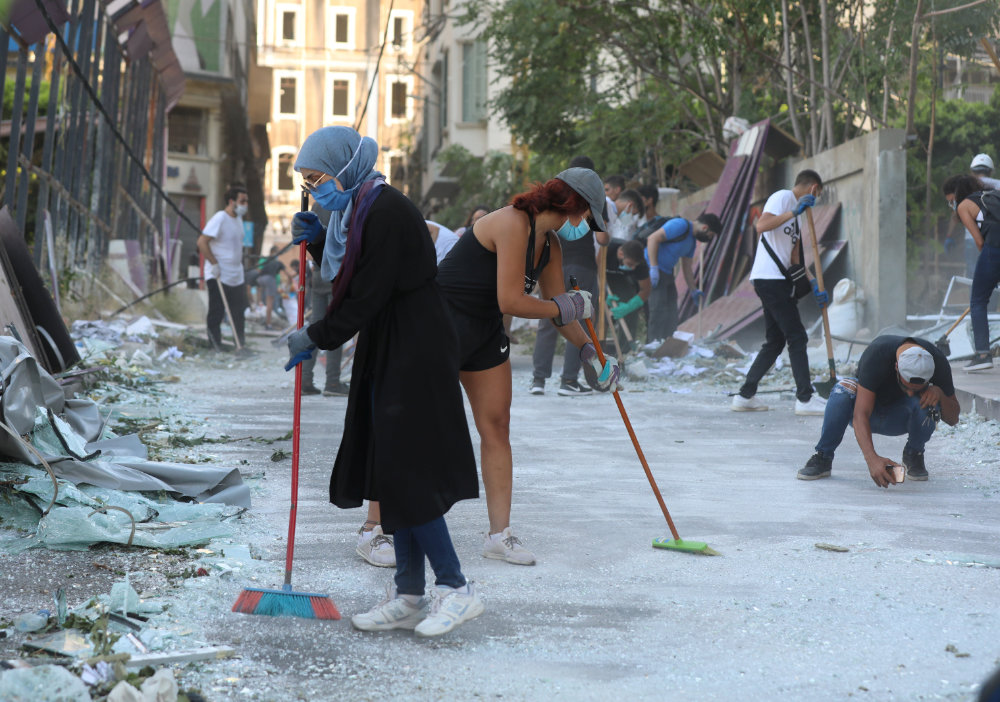
Volunteers clean the streets in Beirut's port area on August 5, 2020 following Tuesday's devastating blast. (REUTERS/Mohamed Azakir)
Jad said that he had been trying to emigrate but changed his mind and decided to stay in the country after the explosion at Beirut’s port. “We have not witnessed any wars, and when the 2006 aggression happened, we were kids,” he told Arab News.
“My parents lived through many wars, and yesterday they were shivering and counting on me to rescue them after the explosion. That affected me a lot.”
Jad added: “I turn to them to care for me usually, but yesterday it was the other way around. I used to hear war stories from my grandfather and father, but today I am living that experience, not knowing whether I will ever be able to tell my children about it.
“My grandfather had told me that war is over and behind us, but today it looks like we are heading toward it once again. Where is the happy ending? I do not want to tell my children that we left Lebanon because it became unlivable.”
Sabil spoke on behalf of a group of young women who came from Tripoli. “We are from the Humanities and Social Science Organization. We normally help people in Tripoli, but this is our capital, Beirut, and it is our duty to help it in its disaster,” he told Arab News.
“We know the beautiful buildings in Beirut but they are destroyed today, and people need us. Our parents have accompanied us to Beirut to donate blood in hospitals.
“We worked on removing debris from inside a lot of homes that were left without any furniture, and people are unable to compensate for their losses but if we, young people, continue our volunteer work, we might rebuild the walls that were destroyed. We want to give people hope.”
Nayla Mouawad, a volunteer college student, said: “My female friends and I wore masks and decided to take to the streets. People need us and we must help each other.”
Yvon Azar said: “The streets are crowded because people are coming to Beirut to help. This is humanitarian work we should be proud of.”
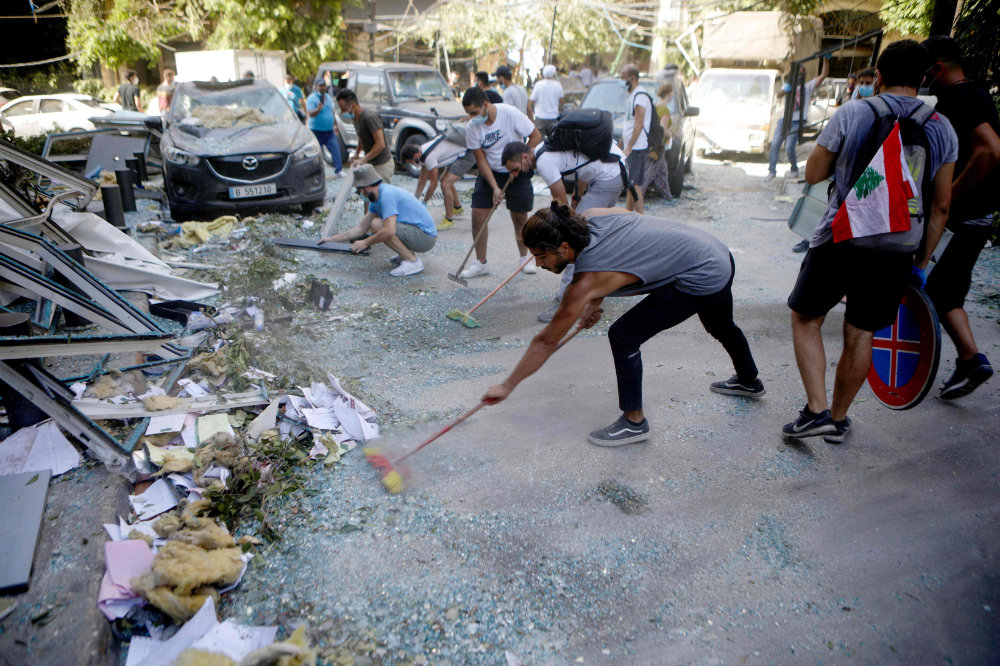
Lebanese activists take part in a campaign to clean the damaged neighborhood of Mar Mikhael on August 5, 2020. (AFP / PATRICK BAZ)
Scenes showing young people’s enthusiasm to help were preceded by stories about young men and women who turned into heroes on social media platforms.
Sahar Fares, 25, was the first female paramedic from the Beirut Fire Brigade who was motivated to help her friends put out the fire at the port that led to the huge explosion that happened seconds afterwards. Her body was later found and she was buried on Thursday, amid applause for her patriotism and humanity.
Eight of Sahar’s colleagues are still missing, according to fire brigade commander Nabil Khankarly.
The Order of Nurses mourned five of their colleagues who died in Beirut’s port explosion on Tuesday in the line of duty at hospitals and centers that were destroyed by the blast. The nurses were: Lina Abou Hamdan, Jessy Kahwaji Daoud, Jessica Bazdarjian, Mireille Jermanos and Jacqueline Jibrin.
Meanwhile, people on social media platforms shared a photo of nurse Pamela Zeinoun holding three newborns and trying to keep them warm after the Al-Roum Hospital where she works was extensively damaged.
___________________
Twitter: @najiahoussari


